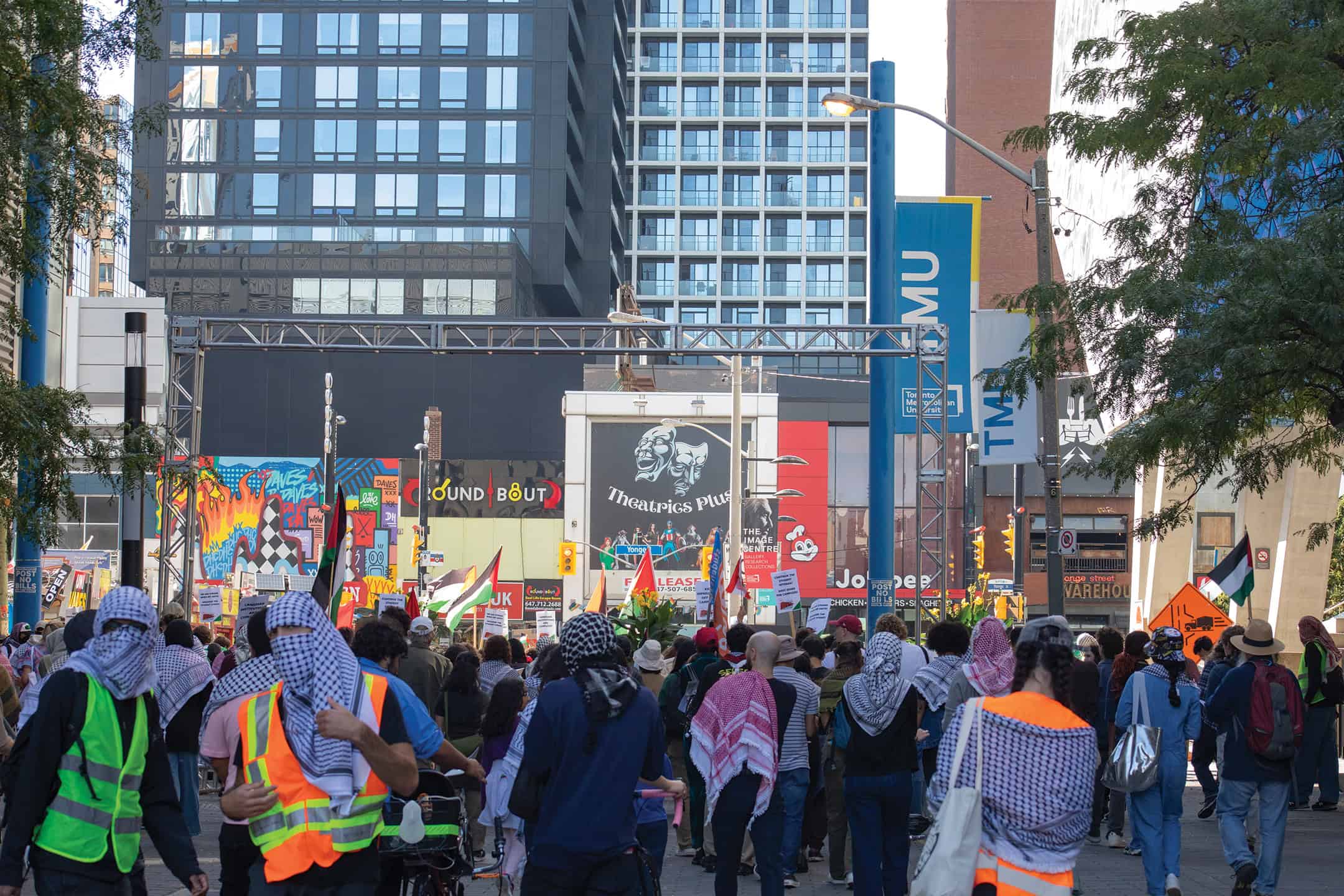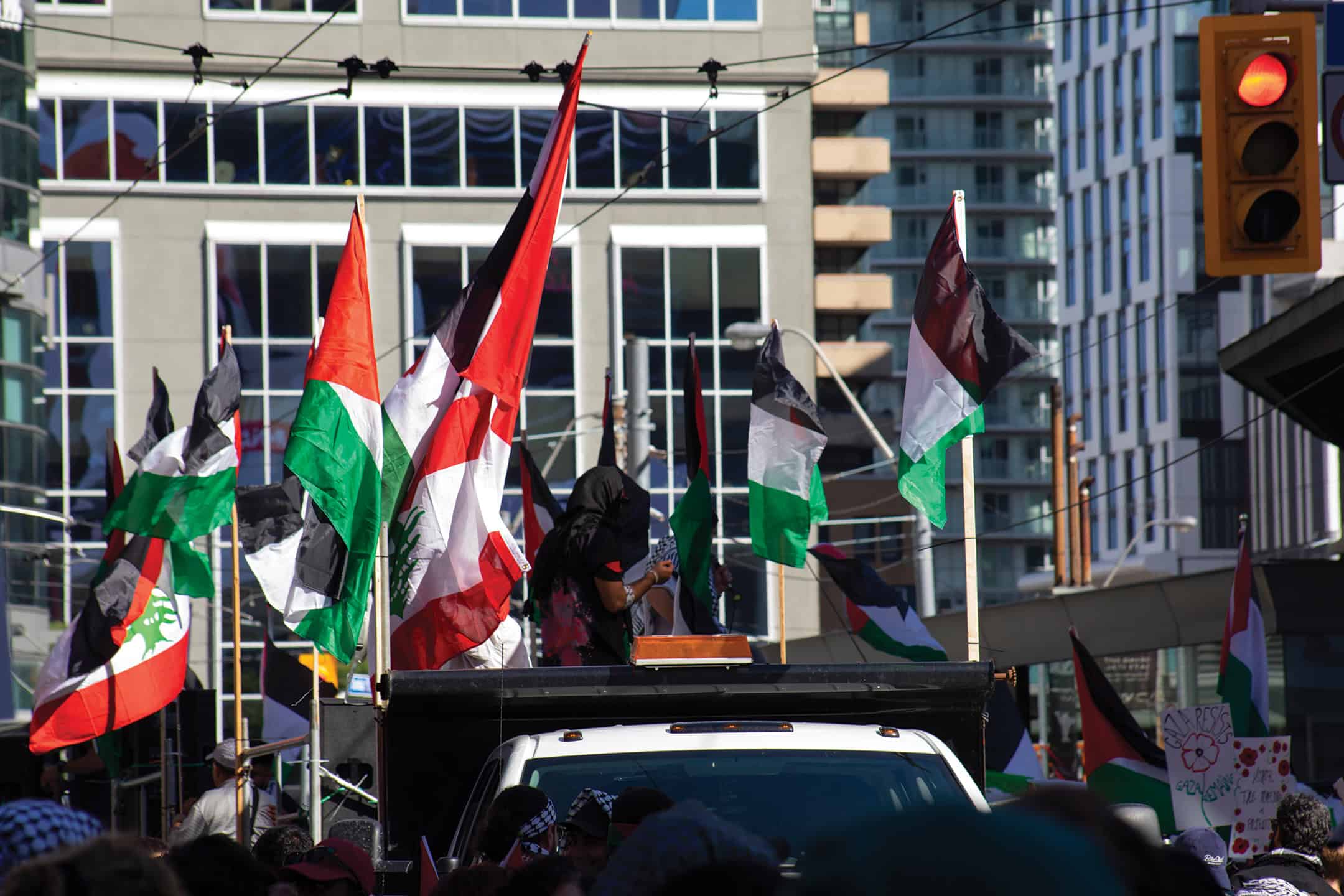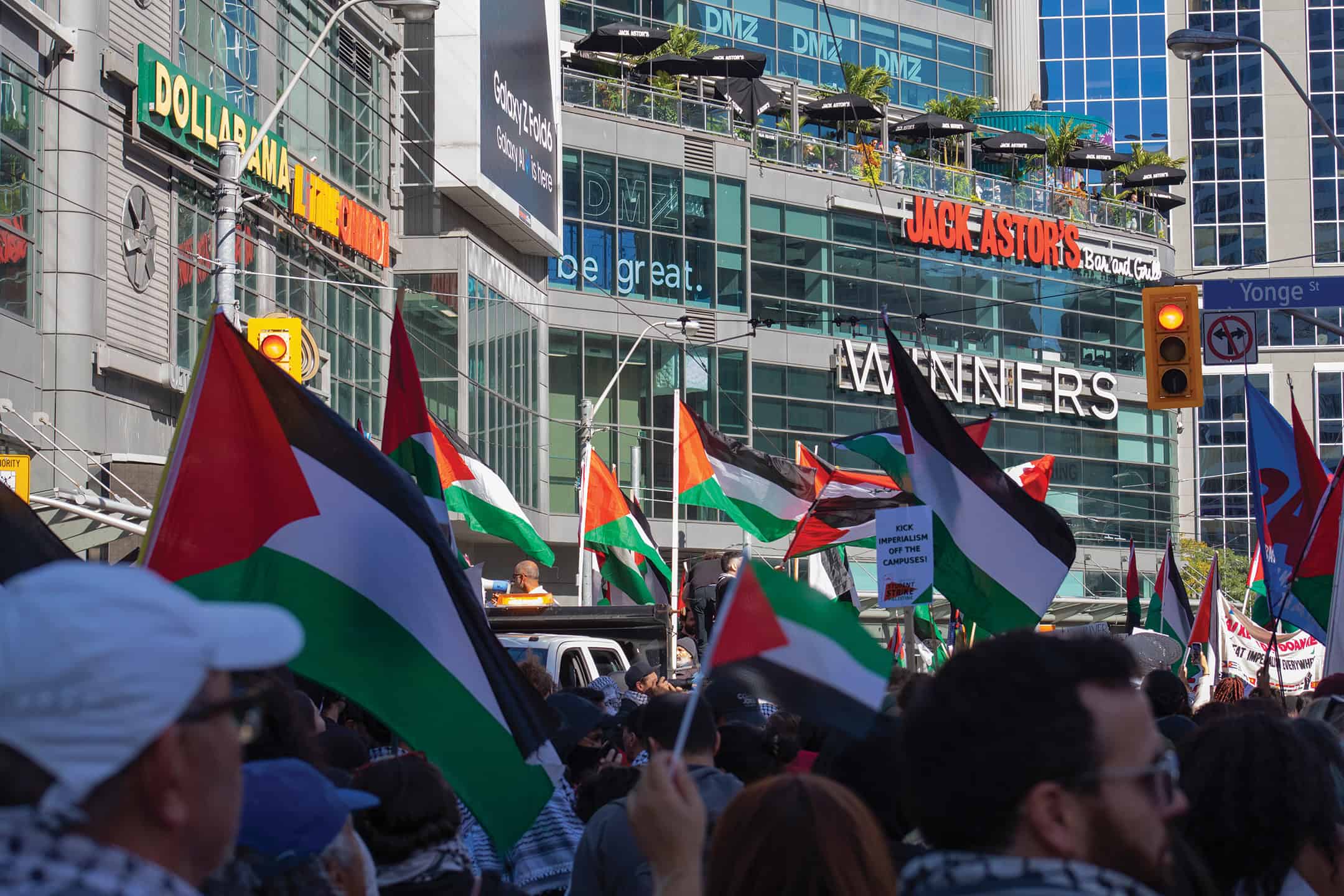Content warning: This article discusses death and the recent and ongoing violence in Gaza and Lebanon.
On October 5, the Palestinian Youth Movement — a transnational, grassroots organization of young Palestinians — held an International Day of Action rally in Toronto. Nearly 50 rallies were organized in major cities across Canada and the US as part of the movement.
Among the 14 student groups across Ontario that participated in the rally were UofT Occupy for Palestine (O4P), Tkarón:to Students in Solidarity with Palestine (TSSP), the University of Toronto Mississauga Students’ Union, and the Scarborough Campus Students’ Union.
The protesters met at King’s College Circle and marched to Yonge-Dundas Square, stopping at Toronto Metropolitan University (TMU).
Students rallied in protest of the ongoing violence in Gaza over the past year. As of writing, more than 42,000 Palestinians in Gaza and over 1,200 people in Israel have been killed since October 7. Since 2023, Israel’s attacks on Lebanon have also killed over 2,000 people.
The rally
Approximately 150 protesters gathered at King’s College Circle around 1:00 pm to begin the rally. The protesters included students from York University and George Brown College.
Across from Simcoe Hall, the students chanted, “disclose, divest, we will not stop, we will not rest,” and “from the river to the sea Palestine will be free.” Since May, student protesters have demanded that the university disclose its financial holdings, divest from companies supplying weapons to Israel, and cut ties with Israeli academic institutions.
Around 30 minutes later, the protesters began to march. They went down King’s College Circle Road to College Street, walked past Queen’s Park, and turned down Yonge Street. They then stopped at Nelson Mandela Walk near the TMU campus.



In a statement to The Varsity, Sara Rasikh — a second-year masters student studying social justice education and O4P spokesperson — explained that by marching through both campuses, the protesters “made it clear that students from campuses across the province and country stand united.”
A university spokesperson wrote to The Varsity that any claims connecting the university to Israeli military action have “no basis in fact.”
As they continued to march, student protesters chanted “no tuition for destruction,” and “the students united, will never be defeated.”
By 2:30 pm, the students joined thousands of protesters gathered at Yonge-Dundas Square.
Students speak out
On the same day as the rally, TSSP released a statement to the media outlining the student protesters’ demands.
“Fourteen student groups from Toronto, Waterloo, Windsor, London, Guelph, and Kitchener are responding to the international call to action that sheds light on the ongoing genocide in Palestine, which Canadian institutions are funding through their investments in military, defence, and technology companies sustaining the genocide, as well as businesses operating on stolen Palestinian land,” the statement read.
The statement also noted how international organizations, like the United Nations (UN) General Assembly and the International Court of Justice, have condemned the actions of the Israeli government as violations of international law.
“Students across Ontario have consistently protested the complicity of Canadian institutions in the 76-year occupation and ethnic cleansing of Palestine by Israel throughout history,” read the statement. “As we approach one year of genocide, we not only honour our martyrs, but also the resilience of Palestinians.”
This March, a UN human rights expert reported that there are “reasonable grounds” to believe that the Israeli government is committing genocide against Palestinians in Gaza. On October 18, a UN Independent International Commission of Inquiry on the Occupied Palestinian Territory also found that “international law obliges Israel to end its occupation.”
“Participating in the international day of action was essential to stand against the ongoing genocide in Palestine, which has been an urgent global issue for the past year,” Rasikh noted. “It’s important for us as students to show solidarity with the Palestinian people resisting colonial violence and to recognize our responsibility in challenging institutions complicit in that oppression.”
Rasikh also explained, “Students can expect more programming, including teach-ins, protests, and collaborative events between different student movements.”
“There will also be continuous efforts to engage new students in understanding the university’s role in global oppression, along with mobilizations aimed at creating sustained pressure on U of T to align its actions with the principles of justice and human rights,” she added.



No comments to display.